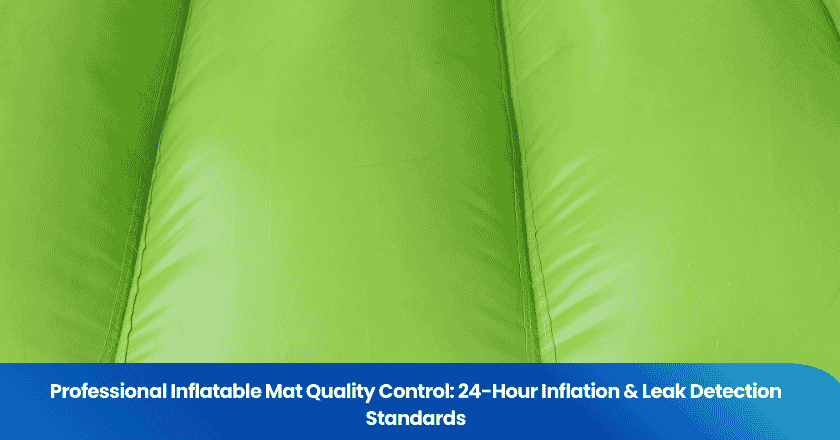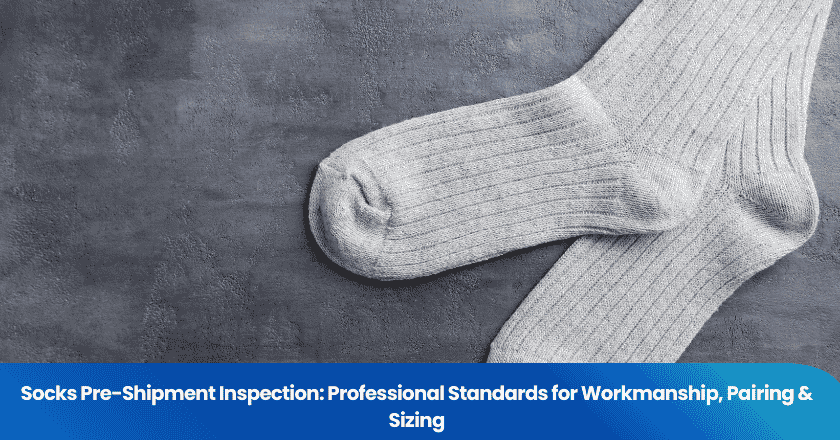
In the manufacturing industry, choosing a reliable manufacturing sourcing company is the key to ensuring stable supply chains, product quality, and cost control.
With the intensification of market competition, finding a suitable manufacturing sourcing company becomes particularly important, but the entire process is not easy. Enterprises face multiple challenges such as the massive screening of market information, the screening of supplier qualifications, and the assessment of cooperation risks.
By establishing cooperation with an excellent manufacturing sourcing company, enterprises can obtain stable and high-quality raw material supply, reduce costs by optimizing the procurement process, enhance market competitiveness, and achieve a win-win situation.
Understand manufacturing sourcing
Definition and Importance
What is manufacturing sourcing? Manufacturing sourcing refers to the activities of manufacturing companies to obtain raw materials, components, production equipment, services, and other necessary resources from external markets to meet production needs. The process involves multiple links such as market research, supplier selection, price negotiation, contract signing, and logistics arrangement, aiming to obtain resources that meet production requirements at the lowest cost and highest efficiency.
Why is it crucial for a manufacturing sourcing company?
1. Ensure smooth production: Timely and stable procurement is the foundation for ensuring uninterrupted operation of the production line, avoiding production stagnation caused by material shortages.
2. Cost control: Effective manufacturing sourcing management can reduce the procurement costs of raw materials and services, enhancing the overall profitability of the enterprise.
3. Improve product quality: Choosing high-quality suppliers and materials is directly related to the quality of the final product, affecting the brand image and market competitiveness of the enterprise.
4. Enhance flexibility: A good manufacturing sourcing system enables enterprises to respond quickly to market changes, adjust procurement strategies, and adapt to the production needs of different products.
5. Promote technological innovation: Cooperation with suppliers is not limited to material procurement, but also includes technical exchanges and information sharing, facilitating enterprises to introduce new technologies and materials, and enhancing production efficiency.
Type of manufacturing sourcing company
Local suppliers
- Advantages: Geographical proximity facilitates communication, coordination, and on-site inspection. Short delivery cycle reduces inventory costs and risks. Familiarity with local regulations and market environment makes cooperation easier. Minimal cultural differences facilitate the establishment of long-term trust relationships.
- Disadvantages: The cost may be relatively high, especially for certain specific materials or technologies. The range of options may be limited, especially for companies that require special materials or technologies. In some industries, domestic suppliers may lack international competitiveness.
Overseas supplier
- Advantages: It can provide high-quality resources and advanced technology from around the world. The cost is usually lower, especially in countries with lower labor costs. It helps companies achieve globalization strategies and expand into international markets. It can bring different management experiences and business models, promoting corporate innovation.
- Disadvantages: Communication barriers, including language, time difference, and cultural differences. Long delivery cycles, increasing inventory costs and risks. Exchange rate fluctuations and changes in international trade policies may bring additional costs. Long-distance transportation may increase logistics costs and carbon emissions.
Whether to choose domestic suppliers or overseas suppliers requires enterprises to comprehensively consider factors such as their own needs, cost considerations, market strategies, and risk tolerance.
Key criteria for identifying reliable manufacturing sourcing companies
Experience and professional knowledge in manufacturing sourcing company
Years of industry experience
Years of operation in a specific industry mean that suppliers have a profound understanding of the industry, including market trends, technological innovations, and changes in customer needs. Rich industry experience often comes with successful cases and a stable customer base, which is an important reference for evaluating supplier reliability. The long-term accumulated experience enables suppliers to propose solutions more quickly and effectively when facing unique challenges in the industry.
Professional knowledge
A supplier should possess profound professional knowledge related to the products or services provided, including material science, production processes, quality control, etc. An excellent supplier will continuously invest in employee training and technology research and development to maintain its leading position in the industry. Professional knowledge is also reflected in the ability to provide customized solutions based on the specific needs of customers, enhancing the value of cooperation.
Quality assurance
Certification and Standards
Certifications such as ISO 9001 Quality Management System and ISO 14001 Environmental Management System are international recognitions of the supplier's quality management level. Adhering to and surpassing industry-specific standards and norms ensures the consistency and safety of products.
Quality control process
From the storage of raw materials to the delivery of finished products, each link should have strict quality control points. Establish a quality feedback mechanism, regularly review the quality control process, and continuously optimize to improve efficiency and reduce defects. Establish a perfect product traceability system to ensure that the cause can be quickly located and measures can be taken when problems occur.
Financial stability
Financial health indicators
Stable profitability is the foundation for the long-term existence of a manufacturing sourcing company, and it is also the premise for it to continuously invest in technological innovation and service improvement. Good cash flow management can ensure that the manufacturing sourcing company has sufficient funds to respond when facing market fluctuations, avoiding supply chain disruptions.
Long-term feasibility
Evaluate the supplier's market share, growth potential, and competitors in their market to assess the possibility of their long-term development. Understand the supplier's future development plans, including new product development, market expansion, technology upgrades, etc., to evaluate their alignment with the company's own strategy. Assess the supplier's ability to respond to risks such as market changes, natural disasters, and policy changes, to ensure they can still supply stably in uncertain environments.
The key criteria for identifying reliability encompass the supplier's experience, professional knowledge, quality assurance system, financial stability, and the feasibility of long-term development. These elements collectively form an important basis for evaluating whether a supplier is worth cooperating with.
Step-by-step guide for evaluating manufacturing sourcing companies
Research and shortlisting
Learn about information through the Internet plus
Through keyword search, collect basic information, product range, market evaluation, etc. of potential suppliers. Review reports published by industry research institutions to understand market structure, supplier rankings, and industry trends. Participate in or observe relevant industry communities to obtain actual usage feedback and reputation of suppliers. Deeply analyze supplier official websites to understand their corporate culture, historical evolution, technical strength, and successful cases.
Gather information through industry groups
Inquire with other enterprises in the industry to understand the suppliers they cooperate with and obtain first-hand recommendations. Consult industry associations or professional institutions to obtain a list of high-quality suppliers recognized by the industry. Review suppliers' customer evaluations or case studies to understand their responsiveness to customer needs and service quality.
Conduct an interview for a manufacturing sourcing company
Key questions to ask
1. Production Capacity: Inquire about the supplier's production scale, equipment condition, and manufacturing sourcing capacity to ensure it can meet the procurement needs of the enterprise.
2. Quality control: Understand the supplier's quality control system, inspection standards, and non-conforming product handling process.
3. Delivery cycle: Clarify the supplier's delivery time, emergency order processing capacity, and logistics arrangements.
4. Price strategy: Discuss the price composition, discount policy, and price concessions for long-term cooperation.
5. After-sales service: Understand the after-sales service content, response time, and problem-solving capabilities provided by the manufacturing sourcing company.
Evaluate communication skills
Response speed: Observe the speed at which suppliers respond to inquiries, and evaluate their service awareness and efficiency.
Professionalism: Through communication, assess the professional knowledge and industry experience of the supplier team.
Clarity: Ensure that the supplier can clearly and accurately convey information to avoid communication barriers.
On-site inspection and audit
What should I pay attention to during the visit
Production environment: Observe the cleanliness of the production site, safety measures, and the working status of employees.
Equipment condition: Check the age, maintenance, and technical level of the manufacturing equipment.
Warehouse management: Understand the storage conditions, inventory management, and logistics processes of raw materials and finished products.
Quality control points: On-site inspection of key aspects of quality control, such as inspection stations, testing equipment, etc.
Evaluate operational efficiency
Production process: Understand the layout of the production line, the process flow, and the degree of automation, and evaluate production efficiency.
Logistics management: Examine the logistics partners, transportation methods, and delivery punctuality of the manufacturing sourcing company.
Emergency response: Inquire about the response measures and recovery capabilities of the manufacturing sourcing company in the face of emergencies (such as natural disasters, equipment failures).
Through the aforementioned step-by-step guide, enterprises can systematically evaluate the comprehensive capabilities of a manufacturing sourcing company, providing a strong basis for selecting reliable partners.
The final decision to choose a manufacturing sourcing company
After completing in-depth research, interviews, and on-site inspections of the manufacturing sourcing company, the enterprise will enter the stage of making the final decision. This stage requires comprehensive consideration of multiple factors to ensure that the selected supplier can meet current needs and provide support for the long-term development of the enterprise.
Comparison options
Weigh the pros and cons
Pros and cons list: Create a pros and cons list for each candidate supplier, including their advantages (such as price, quality, delivery speed) and disadvantages (such as geographical location, service limitations).
Risk assessment: Assess the potential risks associated with cooperating with each supplier, including supply chain disruptions, quality instability, price fluctuations, etc.
Strategic fit: Consider whether the supplier's long-term strategic goals are aligned with those of the enterprise, including market expansion, technological innovation, and other aspects.
Cost and Value Analysis
Total cost consideration: In addition to direct manufacturing sourcing costs, indirect costs such as transportation, warehousing, and after-sales service should also be considered.
Value evaluation: Evaluate the contribution of products or services provided by suppliers to the overall value of the enterprise, including improving product quality, reducing costs, enhancing market competitiveness, etc.
Return on Investment: Calculate the return on investment for cooperation with suppliers to ensure that the benefits of the cooperation exceed the investment.
Negotiation terms
Contract Key Points
Price and Payment Terms: Clarify the product price, payment method, payment deadline, and liquidated damages, etc.
Quality and Assurance: Define product quality standards, inspection methods, handling of non-conforming products, and quality assurance period.
Delivery and logistics: Determine the delivery time, location, mode of transportation, and cost burden, etc.
After-sales service: Clarify the content of after-sales service, response time, repair or replacement terms, etc.
Confidentiality and Intellectual Property: Protect the business secrets and intellectual property of the enterprise, and prevent information leakage.
Set expectations for a manufacturing sourcing company
Performance indicators: Set quantifiable performance indicators with suppliers, such as on-time delivery rate, quality pass rate, customer satisfaction, etc.
Continuous Improvement: Encourage suppliers to continuously improve their products and services, and establish a regular review and evaluation mechanism.
Cooperation Vision: Share the long-term vision of the enterprise with suppliers and discuss how both parties can grow and expand the market together.
Before making the final decision, the enterprise should conduct thorough communication and negotiation with the candidate suppliers to ensure that both parties agree on the cooperation terms and expectations. Through comprehensive comparison and in-depth analysis, the enterprise should select the supplier that best meets its needs, laying a solid foundation for the sustainable development of the enterprise.
A reliable manufacturing sourcing company is an important cornerstone for the success of the manufacturing industry. By following the above steps, enterprises can systematically identify and select the most suitable partners for themselves.
When making the final decision, it is necessary to comprehensively consider cost, quality, service, and long-term cooperation potential to ensure that the choice meets current needs and can support the future development of the enterprise. Wise decisions will bring lasting competitive advantages to the enterprise, helping it stand out in the fierce market competition.
Grow your business with TradeAider Service
Click the button below to directly enter the TradeAider Service System. The simple steps from booking and payment to receiving reports are easy to operate.





